Potsdam diary of the airship commander
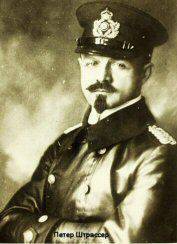 Once the commander of our division of naval airships, Strasser, being in the Ministry of Naval fleet in Berlin, called me there too.
Once the commander of our division of naval airships, Strasser, being in the Ministry of Naval fleet in Berlin, called me there too. 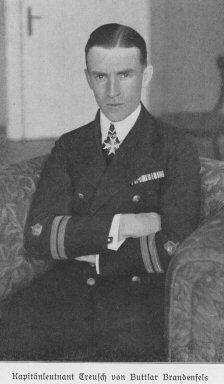 Taking this favorable opportunity, on a warm and quiet evening we sat in the cafe "Austermeier" at Kurfürsterdamm. Berlin was beautiful at this time of year, however, it was always great. The soft music evoked a lyrical mood, the images of romantic adventures excited my young soul, filled her with anxious expectation of something bright and unusual. And I need to leave tomorrow? Leave this rest, this cozy peaceful corner? If Strasser could read my mind?
Taking this favorable opportunity, on a warm and quiet evening we sat in the cafe "Austermeier" at Kurfürsterdamm. Berlin was beautiful at this time of year, however, it was always great. The soft music evoked a lyrical mood, the images of romantic adventures excited my young soul, filled her with anxious expectation of something bright and unusual. And I need to leave tomorrow? Leave this rest, this cozy peaceful corner? If Strasser could read my mind? Suddenly he asked me:
- Tell Buttlar, would you agree to live a few weeks in Berlin, in Potsdam?
- I would agree!? ... Are you asking me!? ... Is it permissible for you, Mr. Captain, to wake up such unrealistic hopes in me? Lord, if you are, you must fulfill this dream ... Lord, do you hear me well? We will drink for it many times! Waiter!!!…
Meanwhile, Strasser informed me that he wanted to suspend the airship sorties for the next few months. The fact is that in Friedrichshafen the construction of new ships of the 40 type is in full swing, and there is not much time left until the completion of their construction. In addition, he said that my crew, from the very beginning of the war, was continuously participating in the hostilities and we just needed a rest. He promised that as soon as the combat flights over the North Sea resumed, he would appoint my crew to be one of the first to do this. I happily agreed.
Further, Strasser said that the army command decided to abandon the use of its own airships, in connection with which it was decided to betray them to the fleet, and that my team would receive them. Evaluation of their condition and the official transfer of army airships will take place in Potsdam. What else can a young officer dream of? Thus, in early January, 1917, we surrendered our trouble-free L 30 to another team, and from Althorn themselves, via Oldenburg, arrived in Potsdam. The next day, the army airship arrived, which received the sea designation L 25. All our sea airships, which the Zeppelin firm supplied us, received the designation "L". We had to work in close cooperation with the technical specialists of the fleet research department, so the ship was to be near Berlin. On the airship it was necessary to install equipment for flying over the sea, as well as to test various innovations and inventions, which the specialists of the maritime department actually did.
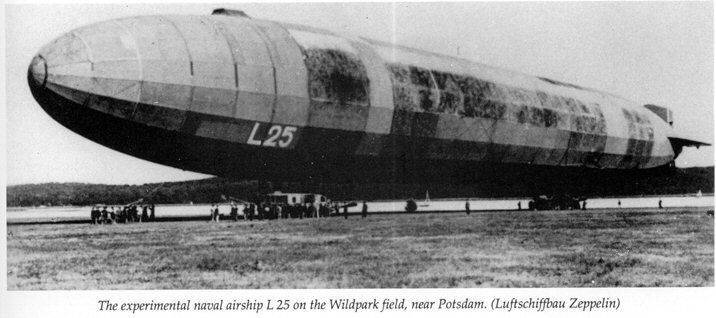
When we got down to business, it turned out that there was no barrack to accommodate the crew near the slipway where the airship was located. The situation with the officers and non-commissioned officers was simpler - we were located in Potsdam in apartments, the owners of which were chosen, first of all, with profit for ourselves. The fact is that at that time there was a time of food shortages, so one of us lived with a baker, another with a butcher, a third took care of the daughter of the owner of a pastry shop, then we switched places, settled down to each other, and thus lived just fine. As one would expect, these circumstances did not contribute to the strengthening of discipline, but people, after a monotonous service on the coast of the North Sea, needed at least a short rest. Now, after a few years, I can say with confidence and pride that all the people who served under my command behaved honestly and flawlessly, both during the war and during the revolution, which was not at all easy.
Much more problems were caused by the deployment of rank-and-file crew members and a ground support team. Our crew consisted of 24 people, and about the same number of sailors were on the support crew. They were sailors attached to the ship and technicians who performed various ground works — gas filling, repairs, entry and exit of the ship from the slipway, etc. Those of them who showed themselves from the good side were trained, and they were eventually introduced into the composition of the airship crew. Thus, I always had the opportunity, if necessary, to increase my crew from among the sailors of the auxiliary crew.
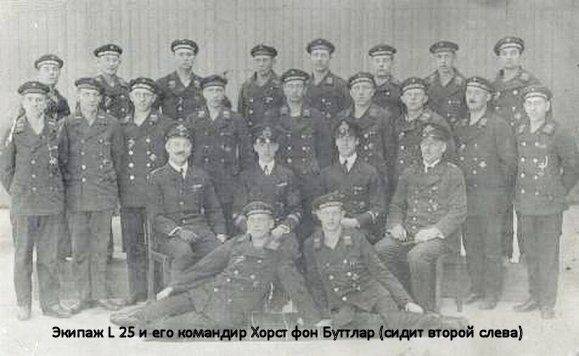
With the request to build a barracks for the team, I repeatedly turned to the "competent" admiral from the Navy Ministry and so tired of him that once he said in a rather sharp form: "For God's sake, do what you want, just leave me alone!". We did not need to repeat twice. My senior officer, Lieutenant von Schiller literally understood the expression - “do what you want” - and after dinner was at the Potsdam Wood Fair. A few days later the construction materials arrived at the construction site, in the zoo area. We were going to build a decent barracks with living rooms, bedrooms and a mess-room. The club bar for non-commissioned officers and sailors, of course, was implied. We chose a place to build as deep as possible in the forest so that the barracks were in the shade of the trees. The frame of the building was almost ready when the “competent” admiral from the ministry arrived to us, inspected the barracks and ordered to move it to another place, since, according to the instructions, the barracks should be located “no less than fifty meters from the shed”. That we, “unfortunately”, did not know until today and, probably, we didn’t understand something in aeronautics. Well, the barracks will be fifty meters from the boathouse, we took a visor.
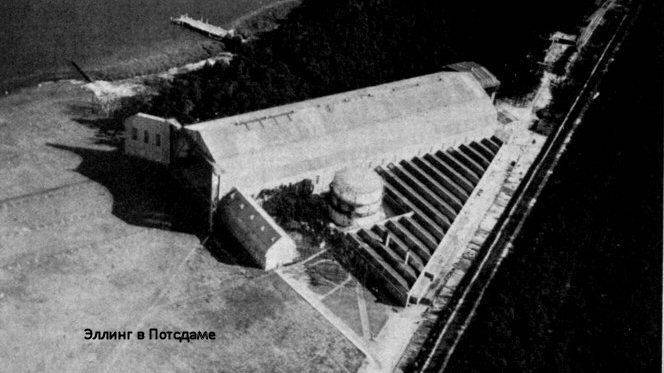
The next time the admiral came to us, when it remained only to put the windows and doors. A senior person inspected the building, and, to our surprise, was again displeased. The barracks can not be located at this place - said the admiral - it will interfere with the withdrawal of the airship from the boathouse. Interestingly, this meant the following: we do not understand anything in aeronautics. I do not think that this figure has ever taken the airship out of the boathouse once in his life. Besides us, no one was so interested in the fact that our airship would safely enter and exit the boathouse, but compared to the opinion of such a “specialist”, our timid objections were simply amateurish. Thus, we were not destined to finish the construction of the barracks for the second time. I think that the demolition and assembly of the building cost more than the entire barracks. In the end, the barracks was built and stood for a long time in that place. Later, after the decision to close the aeronautical station in Potsdam, she was transported to Tondern (Schleswig-Holstein).
It would not be so sad if not ... the inventors. The inventors that we got on our heads at the behest of ministerial officials were simply terrible. To our bewilderment and great regret, all the inventions that we had to discuss or test were completely divorced from reality and absurd. I recall one such typical inventor. One day, they called me from the ministry and invited me to talk with one, as I clarified, a famous science and technology figure. Taking with me my assistant lieutenant Schiller, who was strong in all sorts of technical stuff, I went to headquarters. Professor Erfinder, whom we met, was a very educated person. According to him, for many years he was interested in the problems of naval aeronautics. Having thoroughly understood this difficult question, the professor decided to propose for practical implementation an original idea that would allow without much difficulty and risk to destroy the entire navy of Great Britain. Schiller and I looked at each other in amazement and prepared to listen with genuine interest. The project of the professor was carefully and in detail developed. Its essence was as follows.
- Airships must destroy various vehicles, enemy ships at sea and, above all, warships - the professor began with undisguised pathos. - In order to eliminate the danger for the airship itself, both as a result of counter-fire anti-aircraft weapons and when bombs are stored on board an airship, which present an undoubted potential threat to the ship itself, all bombs must be taken to the balloon towed behind the dirigible on a long rope 1000 meters.
Schiller, who was sitting across from me, had his eyes on his forehead, and in order to prevent interference with Erfindenr's speech, I had to kick him under the table.
“We will hang the bombs along the sides of the balloon basket on special locks — unnoticed by the rage, the professor continued,” we will attach a long steel cable to the bottom of the basket at the same time, approximately to the water level, at the bottom end of which we will install an electromagnet. The airship will have to pass over the enemy ship, towing a balloon with bombs and a steel cable with an electromagnet at the end.
“Oh, God, why,” I burst out involuntarily, “why this damned electromagnet?”
Mr. Erfinder looked at us triumphantly, winked and smiled indulgently, replied:
“Y-yes, sir, think faster. An electromagnet can only be activated from the side of the airship, is it not?
Keeping Olympic calm and demonstrating unfeigned curiosity, I ask:
- Fine professor! So, it is operated from the airship, but I think ...
Not allowing me to finish the thought, and triumphing over my stupidity, Erfinder enthusiastically blurted out:
“As soon as the electromagnet is turned on, it will stick to the ship’s armor!” You now understand what I mean? Great, isn't it? Yes, really beautiful! And then, when the cable is firmly attached by an electromagnet to the hull of the ship, the enemy team can do anything, but it will be impossible to tear this cable from the ship ...
- And then what? - still not catching up with the profound thought of the genius, I ask hopelessly.
- What's next? - he said with undisguised contempt at me, - the bombs from the aerostat will slide down the rope to the ship and explode, there will be no way to miss ...
“A complete moron,” a crazy thought flashed through my mind. Schiller's face turned red and turned into wrinkled beets. In the development of the “brilliant” idea of the professor, a new one was suddenly born in my head - is it possible to make such a “wire path” for an artillery shell? Contrary to common sense, I politely try to convince Mr. Erfinder that his proposal cannot be put into practice.
- A cable of such length (1000 meters) connecting the airship and balloon, under the influence of its gravity necessarily sags, it will not be absolutely horizontal, as in the drawing of a respected professor. This will lead to the fact that the balloon comes close to the stern of the airship, negating the obvious advantages that we could get from using this idea.
Reaction Erfinder was instant:
- This can be corrected by strengthening, for example, small balloons with gas through each meter of cable. These balls will keep the tow rope in a horizontal position.
The “wrinkled beet” rolled its eyes, was covered with spots and began to search frantically for something under the table.
“Well, I agree,” still not losing my composure, I carefully try to lower our professor from heaven to earth, “nevertheless, the danger to the airship remains, because you have to fly over the enemy ship, and this is not safe.”
“Yes, indeed it is,” our inventor stumbled for a moment, “therefore, we must not tow the balloon, but push it in front of us!”
“Khe,” I even choked in surprise, “consequently, I have to push an aerostat in front of me on a cable one kilometer long, and even with 999 small balls ... You know, dear professor, it will be very difficult to put into practice, believe my experience. Yes, it is very difficult ... Thank you very much for your project, but it seems to me that we still need to work on it, and then we will meet and talk again ...
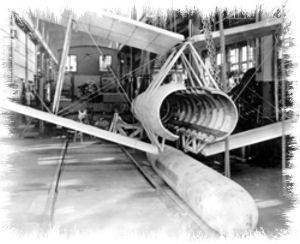 And yet, one of the proposals was interesting, and we tried to bring it to life. One well-known company proposed an original project, the implementation of which would allow a long-range airship to attack an enemy ship with a torpedo. The idea was that a glider-biplane was attached to the airship, the torpedo was used as the fuselage. The airship lifted the glider and delivered it to the right place. Then the glider undocked from the airship and flew with a decrease in the direction of the target. Management and targeting was carried out from the gondola using a thin cable longer than 7000 meters. At the calculated point, the glider fell down, the torpedo was separated, and already under water went to the target.
And yet, one of the proposals was interesting, and we tried to bring it to life. One well-known company proposed an original project, the implementation of which would allow a long-range airship to attack an enemy ship with a torpedo. The idea was that a glider-biplane was attached to the airship, the torpedo was used as the fuselage. The airship lifted the glider and delivered it to the right place. Then the glider undocked from the airship and flew with a decrease in the direction of the target. Management and targeting was carried out from the gondola using a thin cable longer than 7000 meters. At the calculated point, the glider fell down, the torpedo was separated, and already under water went to the target.Soon the first prototype of the glider was delivered to our base in Potsdam and hooked up to the airship. Instead of a real torpedo, a full-size weight model was installed. We climbed to the height of 1000 m above the lake and freed the glider. He flew about 100 m, fell on the left wing, went into a tailspin and crashed, colliding with water. Failure. However, the designers present at the tests did not lose their presence of mind and firmly believed in their idea. Quickly enough, a new version of the airframe was made. In comparison with the first sample, the control has undergone significant alteration. Now the airframe controls were installed in the airship's gondola so that the elevators and the rudders could be controlled and, at the same time, their shifting too drastic was excluded, which was the cause of the catastrophe of the first sample. We climbed to the height of 1000 m and dropped the glider. He flew, slowly losing altitude, in the direction of the landing site. Two designers were in the front gondola, driving a glider. This time the device perfectly obeyed the rudders, and the designers allowed themselves to make even turns on it. A few minutes later the glider made a successful landing. Then there were still test flights, but I will not talk about them - it will take too much time. This invention was never brought to the stage of its adoption by the fleet, although, unlike the case with a towed balloon, it was very interesting and promising.
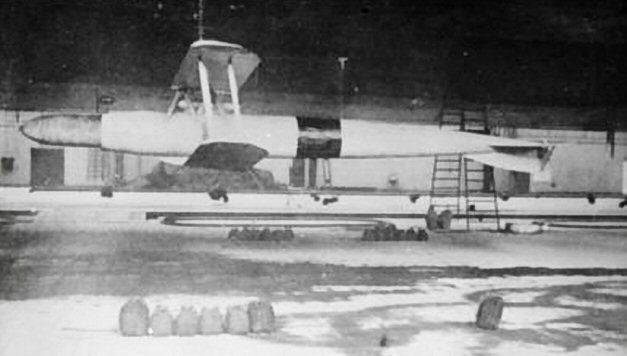
Despite all the realities of life, the time spent in Potsdam was wonderful. The service took minimal time. Every day, in the first half of it, we made short walks on the airship over Berlin and its environs. The walk was “hindered” only by the numerous guests aboard the airship, who wanted to look at the capital and Potsdam from above. Often among the passengers were very high-ranking officials, for whose arrival we carefully prepared. For us, this meant that everyone should be in parade uniforms, and those who had orders and medals should have them dressed. We decorated ourselves with all sorts of stripes and aglets, trying in every way to look more energetic. Once a member of my crew, whose chest looked quite “modest” against the background of his comrades, hinted to me that fact. I must say that the process of receiving the award was a very difficult matter. Had to draw a large number of different papers. Write a justification, fill out special forms, which sometimes came back after a few weeks, because, for example, column No. 7 was filled in incorrectly. Therefore, it is clear that it was extremely difficult to fulfill the official request of this person. However, we did everything that was in our power, turning the “race for awards” into a kind of comic competition. It was considered a special chic among us to fasten an original, even if not military, medal or order onto the uniform.
The task was simplified if a high-ranking person appeared on board our airship and had the right to reward. Here we showed the wonders of resourcefulness to get the coveted "prize." My senior officer once told me that a Turkish prince Osman Fouad arrived at the 1 Guards Regiment in Potsdam, who had the right to award the Iron Crescent with a medal, and who, unlike the Iron Cross of I degree, was worn on the right side of his tunic, which further increased its importance in our eyes. Thanks to the sea of drunk schnapps and the “inhuman” efforts of Schiller, the Turkish prince appeared on board our zeppelin. We showed him from the air all the beauties of Berlin and the surrounding area, were politely and attentive to closeness - but ... We did not receive the Iron Crescent.
Soon, we heard that Crown Prince von Hohenzoller-Sigmaringen had expressed his interest in airships, and Schiller took it upon himself to invite him to fly on an L 25. Here we should not have missed our chance - even if the prince himself had no right to reward, his father, the ruling king, simply had to listen to the opinion of his son. We offered to show the prince the front-line base of the airships and received permission from Strasser to visit Alhorn, a large, recently built base, south of Oldenburg. Upon arrival, we put our ship in the boathouse, where there was an empty seat, and went to meet with old friends. The prince turned out to be quite a companionable man, and we indulged in unbridled fun. One day I was called to the telephone - it was Strasser, who said that he allowed us to make an intermediate landing in Alhorn, allowed us to take the place of the combat airship in the boathouse, but now it’s time and honor to know, because we disorganized the base’s activities with our hard drinking, and that our spirit would not be there tomorrow morning. By noon tomorrow, we returned to Potsdam.
Our distinguished guest was completely satisfied with our journey - they would have made so much effort, and invited Shiller and I to 20.00 for dinner in the living room of the 1 Guards Regiment. I appeared there a few minutes before the appointed time. The prince met me in a good mood and said that he was authorized, on behalf of his father, to award me with some court order — this was the limit of my dreams. In the "glitter" of the new award, I stood in front of the mirror when Schiller appeared in the wardrobe ... There were no new awards on his chest. True, he was holding something in his hand.
“Something I got too,” he said with a sour expression on his face, “instead of an order, just a picture.”
- What should I do with her? - he was indignant.
“Hang it on your chest,” I advised him recklessly. Further, I tried to stay away from him, since all that evening Schiller was "thrown" around himself with thunder and lightning.
To our great regret, the beautiful days in Potsdam soon ended - a new zeppelin was waiting for us in Friedrichshafen ...
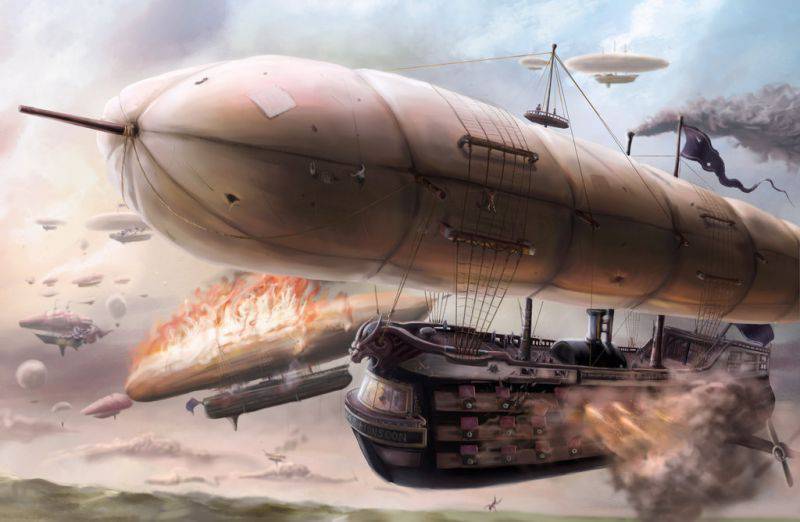
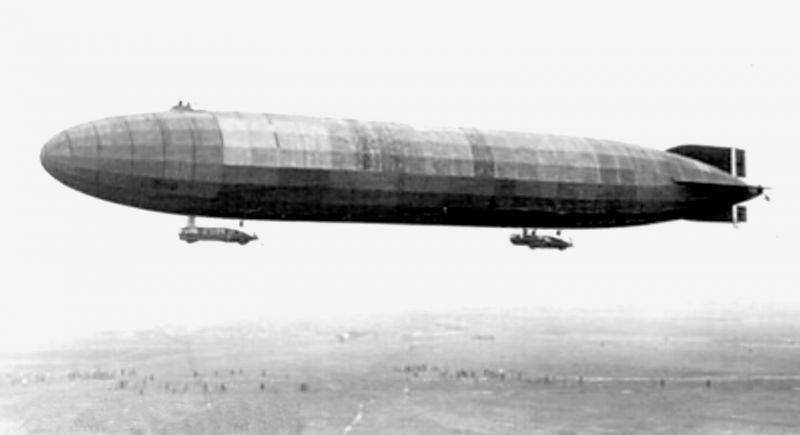
Information